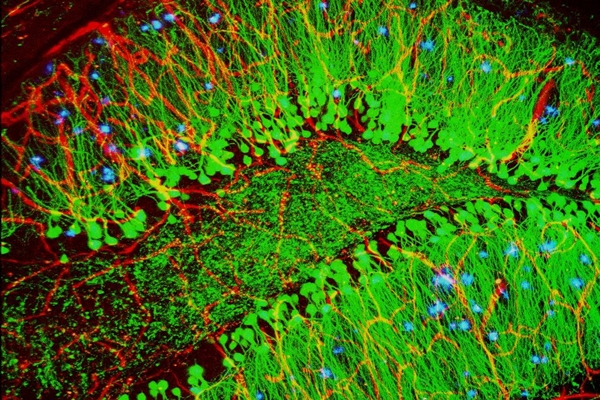1 November 2017. A foundation supporting research on new drugs to treat Alzheimer’s disease says clinical trials now underway are testing 126 potential therapies for the disorder. The report, Closing in on a Cure: 2017 Alzheimer’s Clinical Trials Report, was issued today by Alzheimer’s Drug Discovery Foundation in New York.
Alzheimer’s Drug Discovery Foundation supports research on new drugs to prevent or treat Alzheimer’s disease, a progressive neurodegenerative condition affecting growing numbers of older people worldwide. People with Alzheimer’s disease often have deposits of abnormal substances in spaces between brain cells, known as amyloid-beta proteins, as well as misfolded tangles of proteins inside brain cells known as tau.
The report identifies and describes the 126 drugs in development for Alzheimer’s disease being tested with humans, designed to prevent, slow, or reverse the effects of the disorder. About half of the new drugs, 68 of the 126 total, are in intermediate-stage trials, where the drugs are often tested against a placebo, but with smaller samples. Another 33 prospective therapies are in early-stage trials, generally testing the safety or tolerability of the drug, as well as determining a safe dose for patients. And 25 of the 126 therapies are being tested in late-stage trials, usually against a placebo among larger numbers of participants, where results are often critical for approval by regulatory authorities.
About a quarter of the drugs in clinical trials — 30 of 126 or 24% — address the accumulated beta-amyloid proteins associated with Alzheimer’s disease, which the foundation says has not yet proven to be a productive approach to finding successful treatments. Another 11 drugs are targeting other misfolded proteins associated with Alzheimer’s disease, such as tau.
Other factors addressed by the new drugs are synapse activities, neurotransmitter chemicals, protection of nerve cells, mitochondria — the energy centers of cells , cell metabolic functions, inflammation, and vascular issues. Only 3 of the 126 drugs in clinical trials deal with genetics or epigenetics related to Alzheimer’s disease. Another 19 drugs aim to treat symptoms related to Alzheimer’s disease, including agitation, depression, and insomnia.
Nearly two-thirds, 80 of 126 or 63 percent, of the Alzheimer’s drugs in clinical trials are small molecule, or low molecular weight chemical compounds, with another 32 biologic therapies derived from living organisms, such as vaccines designed to stimulate the immune system. But the report also notes a relatively small number, 43 of the drugs, are repurposed or repositioned treatments — initially approved or developed for other uses — which can accelerate the development of new treatments since the safety of these drugs are already determined.
In addition, the report lists continuing challenges facing Alzheimer’s clinical trials, notably high standards for primary trial objectives that must include improvements in both memory and daily functioning, which drugs for other neurodegenerative conditions do not face. Another continuing problem is recruitment of participants in clinical trials, since many candidates for these studies may not experience symptoms or be aware they have Alzheimer’s disease.
Alzheimer’s Drug Discovery Foundation says its funding accounts for 1 in 5 (20%) of the drugs listed in the report. “Alzheimer’s has too often been a story of failure,” says Howard Fillit, the foundation’s chief scientist in a statement. “But this report shows a diverse group of promising drugs are nearing the finish line. The first disease-modifying treatment for Alzheimer’s is likely in clinical trials right now. ”
More from Science & Enterprise:
- First Trial of Alzheimer’s Drug Underway
- Trial Underway Testing Alzheimer’s-Schizophrenia Drug
- Trial to Test Radio Waves to Treat Alzheimer’s
- Safety, Effects Shown in Drug Clearing Alzheimer’s Peptides
- Trial Shows Antibody Slows Alzheimer’s Cognitive
* * *


 RSS - Posts
RSS - Posts
[…] Report – 126 Alzheimer’s Drugs in Clinical Trials […]